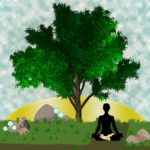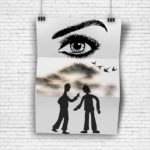The week between Christmas and the New Year is a good week for movies. Below is my list for lawyers:
To Kill a Mockingbird. A great book every lawyer should read and a great movie every lawyer should see. As usual the book trumps the movie, except the movie has Gregory Peck acting like every lawyer should act. If we follow the model of Gregory Peck we will look like a lawyer, talk like a lawyer, and have the demeanor of a lawyer at home, in the community and in the courtroom.
My Cousin Vinny. This is a classic every lawyer will love. It’s funny, and it’s good. We see professionalism with the prosecuting attorney. We see a difficult judge. We see great cross examination. And we learn a whole bunch about the 1963 Pontiac Tempest which had positraction and was driven by the killers and how it cannot be mistaken for the 1964 Buick Skylark driven by Vinny’s cousin.
Hot Coffee. This is a 2011 documentary begins with the infamous McDonalds case, tells the brutal truth about the case, and continues to document corporate America’s and the Chamber of Commerce’s methodical campaign against legitimately injured people and the judges who have the courage to rule for the little guy. I pay every staff member who watches the documentary a $50 bonus.
Witness for the Prosecution. This movie is worth watching because the great actor Charles Laughton plays the English barrister defending his client against a charge of murder. The movie has excellent cross examination scenes by Laughton. It is also fun to watch how a case is tried in England the land where our common law was born.
Twelve Angry Men. This classic with actors including Henry Fonda, Jack Warden, Lee J. Cobb, Jack Klugman and E. G. Marshall is the best jury movie ever made. It gives all trial lawyers hope in that convincing one bright dynamic juror may mean winning the case.
Compulsion. This movie is a must because it is a take off on Clarence Darrow’s life saving defense in the famous Leopold and Loeb thrill killing case. Darrow is played by Orson Wells who does a great job in playing the finest trial lawyer who ever lived. Darrow’s closing is recounted by D. McRae, The Last Trials Of Clarrence Darrow:
“I am pleading for the future ,” he said huskily. “I am pleading for a time when hatred and cruelty will not control the hearts of men, when we learn by reason and judgment and understanding and faith that all life is worth saving, and that mercy is the highest attribute of man.” Darrow felt his own eyes moisten when he saw that [Judge] Caverly was crying…silent tears… powerful enough to alter the shape of the judge’s twiching mouth.
“I was reading last night of the aspiration of the old Persian poet, Omar Khayyam,” Darrow murmured, as his own tears began to roll down his crevassed face. His voice, however, remained firm. “It appealed to me as the highest that I can vision. I wish it was in my heart, and I wish it was in the heart of all:
So I be written in the Book of Love
I do not care about the Book above
Erase my name or write it as you will
So I be written in the Book of Love.
Darrow’s head was bowed, and his eyes were filled. And then aften ten long seconds, he looked up again and nodded to the judge. Slowly, Darrow returned to his seat, the silence following him with gathering force. The quiet held, as if no one dared break the spell.



 The new will which I began to have was not yet strong enough to overcome the other will, strengthened by long indulgence. So these two wills, one old, one new, one carnal, the other spiritual, contended with each other and disturbed my soul. I understood by my own experience and what I had read, “flesh lusteth against spirit, and spirit against flesh.” It was me in both the wills, yet more myself in that which I approved in myself than that which I disapproved in myself. Yet it was through myself that habit had attained so fierce a mastery over me. Still bound to earth, I refused to fight for the spiritual side, as much afraid to be freed from all bonds, as I ought to have feared being trammeled by them.
The new will which I began to have was not yet strong enough to overcome the other will, strengthened by long indulgence. So these two wills, one old, one new, one carnal, the other spiritual, contended with each other and disturbed my soul. I understood by my own experience and what I had read, “flesh lusteth against spirit, and spirit against flesh.” It was me in both the wills, yet more myself in that which I approved in myself than that which I disapproved in myself. Yet it was through myself that habit had attained so fierce a mastery over me. Still bound to earth, I refused to fight for the spiritual side, as much afraid to be freed from all bonds, as I ought to have feared being trammeled by them. There is an antagonism that arises between the healthy-minded way of viewing life and the way of viewing life that holds evil is a reality. To the person who knows evil exists healthy-mindedness is unspeakably blind and shallow. To the healthy-minded person the melancholy person seems diseased.
There is an antagonism that arises between the healthy-minded way of viewing life and the way of viewing life that holds evil is a reality. To the person who knows evil exists healthy-mindedness is unspeakably blind and shallow. To the healthy-minded person the melancholy person seems diseased. His favorite occupation seemed to be strolling or sauntering about outdoors by himself, looking at the grass, the trees, the flowers, the vistas of light, the varying aspects of the sky, and listening to the birds, the crickets, the tree frogs, and all the hundreds of natural sounds. It was evident these things gave him great pleasure far beyond what they give ordinary people.
His favorite occupation seemed to be strolling or sauntering about outdoors by himself, looking at the grass, the trees, the flowers, the vistas of light, the varying aspects of the sky, and listening to the birds, the crickets, the tree frogs, and all the hundreds of natural sounds. It was evident these things gave him great pleasure far beyond what they give ordinary people. [I]f we look at man’s whole mental life as it exists, on the life of men that lies in them apart from their learning and science, and that they inwardly and privately allow, we have to confess that the part of it of which rationalism can give an account is relatively superficial. It is the part that has prestige for it can challenge you for proofs, and chop logic, and put you down with words. But it will fail to convince or convert you all the same, if your intuitions are opposed to its conclusions.
[I]f we look at man’s whole mental life as it exists, on the life of men that lies in them apart from their learning and science, and that they inwardly and privately allow, we have to confess that the part of it of which rationalism can give an account is relatively superficial. It is the part that has prestige for it can challenge you for proofs, and chop logic, and put you down with words. But it will fail to convince or convert you all the same, if your intuitions are opposed to its conclusions. Religion, whatever it is, is a person’s total reaction upon life, so why not say that any total reaction upon life is a religion? Total reactions are different from causal reactions, and total attitudes are different from usual or professional attitudes. To get at them we must go behind the foreground of existence and reach down to that curious sense of the whole residual cosmos as an everlasting presence, intimate or alien, terrible or amusing, lovable or odious, which in some degree we all possess.
Religion, whatever it is, is a person’s total reaction upon life, so why not say that any total reaction upon life is a religion? Total reactions are different from causal reactions, and total attitudes are different from usual or professional attitudes. To get at them we must go behind the foreground of existence and reach down to that curious sense of the whole residual cosmos as an everlasting presence, intimate or alien, terrible or amusing, lovable or odious, which in some degree we all possess.